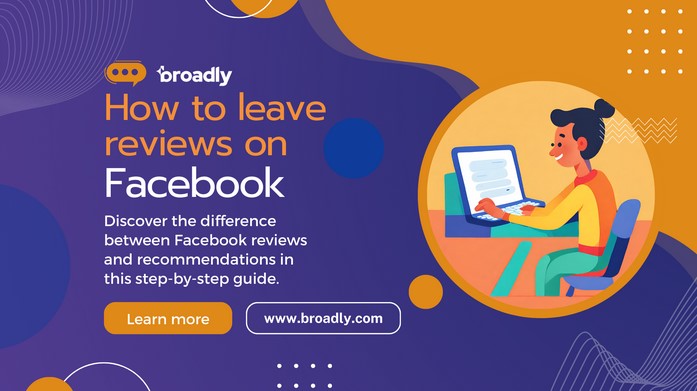 In the ever-evolving landscape of social media, automation has become a double-edged sword—offering convenience on one hand and raising concerns about authenticity and privacy on the other. One notable trend is the use of auto friend request FB tools, which automatically send friend requests to other users on Facebook. While this might seem like a practical strategy to expand one’s network, it also raises important questions about digital etiquette, consent, and the purpose of online connections. As social platforms become more sophisticated, understanding the implications of such features is crucial for both individuals and businesses.
In the ever-evolving landscape of social media, automation has become a double-edged sword—offering convenience on one hand and raising concerns about authenticity and privacy on the other. One notable trend is the use of auto friend request FB tools, which automatically send friend requests to other users on Facebook. While this might seem like a practical strategy to expand one’s network, it also raises important questions about digital etiquette, consent, and the purpose of online connections. As social platforms become more sophisticated, understanding the implications of such features is crucial for both individuals and businesses.
The Rise of Automated Social Networking Tools
Understanding the Function and Purpose
Auto friend request tools are primarily used to automate the process of connecting with new people on Facebook, often based on mutual interests, group participation, or demographic targeting. These tools are commonly employed by marketers, influencers, and networkers seeking to grow their online presence quickly.
Why Use Automation?
For digital marketers and social sellers, manual outreach can be time-consuming and inefficient. Auto tools streamline the process, helping users reach a broader audience, improve visibility, and potentially generate leads or engagement. In theory, the more friends or followers you have, the greater your reach.
Types of Users and Use Cases
- Small Business Owners may use automated requests to reach potential customers or collaborators.
- Influencers might seek to expand their base by targeting fans of similar pages or public figures.
- Job Seekers and freelancers could use such tools to network with professionals in their field.
However, while automation can enhance efficiency, it can also diminish the quality of interactions. Not all friend requests are welcome, especially when they appear unsolicited or spammy. In personal networks where trust and familiarity are key, random or mass-sent friend requests can be perceived as intrusive or even manipulative.
Facebook’s Policies on Automation
It’s important to note that Facebook does not officially endorse the use of auto friend request software. In fact, such practices often violate the platform’s terms of service. Facebook’s algorithms can detect irregular behavior, such as sending large volumes of friend requests in a short time, and may respond by temporarily or permanently restricting account functionality.
Facebook prioritizes meaningful interactions and has built-in measures to prevent misuse. These include daily friend request limits, request filters, and the ability for users to report unsolicited activity. As such, users employing automation tools risk suspension or loss of their account if caught violating these policies.
Etiquette and Ethics in Digital Connections
Balancing Growth with Respect for Privacy
In the age of personalization and curated social feeds, digital etiquette is more important than ever. Just as you wouldn’t introduce yourself to someone in person without some context or invitation, the same principle applies to online interactions.
The Importance of Consent
Sending automated friend requests can feel invasive, especially when there’s no prior interaction or common connection. Respect for digital boundaries means seeking permission or engagement before requesting access to someone’s personal feed.
Personalization Over Mass Outreach
Rather than sending bulk friend requests, thoughtful engagement through comments, likes, or mutual group participation often yields better results. These actions create context and familiarity, making subsequent connection requests feel more natural and less transactional.
Avoiding the “Spam” Label
A user who receives a random friend request may perceive it as spam, especially if your profile appears promotional or inactive. Keeping a well-maintained, authentic profile helps mitigate this and encourages organic connections.
Transparency and Intent
If you’re networking for professional reasons, consider using Facebook Groups or Facebook Pages instead of personal profiles. These platforms allow for content sharing and engagement without requiring personal friend connections, helping maintain a boundary between professional outreach and personal interactions.
Building a Meaningful Network Without Automation
If the goal is to build a lasting, engaging community, then quality should outweigh quantity. Here are some alternatives to using auto friend request tools that align more closely with ethical standards and Facebook’s policies:
- Join Relevant Groups: Participate actively in Facebook Groups related to your interests or industry. Offer value through your contributions and let people come to you.
- Engage Before Connecting: Like or comment on a user’s post before sending a friend request. This shows genuine interest and increases the likelihood of a positive response.
- Create Shareable Content: Post engaging and informative content that encourages shares and conversations. This helps others discover you organically.
- Utilize Facebook’s “Follow” Feature: Allow others to follow your public posts without adding you as a friend. This is especially useful for public figures or professionals.
These methods take more time than automation but often lead to stronger and more authentic relationships—an investment that pays off in loyalty, trust, and reputation.
While tools like auto friend request FB may promise rapid network expansion, they come with ethical, social, and platform-related risks that cannot be overlooked. Navigating the digital world requires more than just numbers—it requires a commitment to respectful interaction, authenticity, and value-driven connection. By building relationships through genuine engagement rather than automation, users can foster a more meaningful and responsible online presence. Ultimately, thoughtful networking is far more rewarding—and sustainable—than what auto friend request FB tools can offer.
